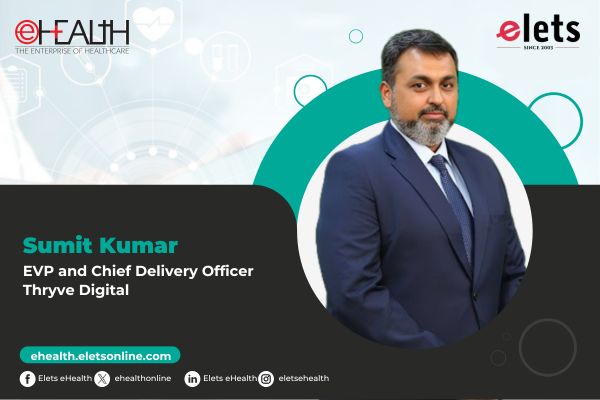
The proliferation of genetic testing is poised to bring a quantum leap for healthcare as the test focuses on preventing possibilities of diseases, writes Dr Ravi Gaur, MD Pathology, Director & Chair of Medical Advisory Committee at Oncquest laboratories Ltd, New Delhi.
What is preventive genetic testing? This question is now being asked by many people. It is a genetic screening test that analyses our genetic make-up to detect our risk for developing a disease condition. It is a once in a lifetime predictive test and not a diagnostic test. It tells us about our risk of having the disease and not whether one has the disease or not and adds to the personalization to our healthcare by complementing our preventive health check.

Genetics has always been a fascinating subject. Genetic testing is a fast-growing, not only in the global markets but even in India. However, there still is a long way to go. Genetic testing can help estimate our chance of developing a disease or even cancer in our lifetime. It does this by searching for specific changes in our genes, chromosomes, or proteins. However, no genetic test yet can say that one will, certainly, develop a disease. It can only tell if one is at a higher risk of developing it.

Before the arrival of genetic testing, scans and blood tests were the only alternatives for people to understand the state of their health. A key limitation of the traditional health check is that it is a single time point measurement- you only get to see what is happening in your body at the time of testing with no forecasting capacity, but now, providers are augmenting these packages with genetic tests. Advancement in genomics has led to calls for developing population based preventive genomic sequencing assays to identify genetic health risks in adults without known risk factors. The genetic testing is becoming more and more mainstream, as the technology matures and tests become more affordable. The mass affordability enables a paradigm shift from sequencing only those with risk factors (such as someone’s family history or medical symptoms) to sequencing proactively to identify risk factors.

Also read: Genetic counseling: A promising endeavor for clinicians

Although genetic tests have been around for the past 25 years, the scale, adoption, costs, and applications have all increased dramatically over the last 10 years due to advances in genetic sciences & technology, affordability of tests, and the quality and quantity of information that is now available from these tests. It will allow every individual to build up genomic data capital, opening the door for new applications and business models across health insurance, care delivery, and everyday life.
Genomics is indeed facing a significant change in healthcare and society. The cost of sequencing has dropped drastically and likely to go down further. The test can be done in days instead of months. Consumers are now enquiring about it and demand is likely to grow by 10 -15% annually if not more. However, a key barrier of genetic medicine is the limited number of testing labs and professionals, who specialize in the interaction of genes and health. There is growing demand even at primary care level, to provide genetic counselling.
In the current decade, healthcare will see a major transition from treatment to prevention. Preventive screenings like BRACA, pre-implantation diagnostics, disease carrier screenings, wellness screenings, prognostic screenings, bioinformatics solutions, pharmacogenomics, nutrigenomics, genetically powered wearables, digital tools, etc will explode, as they can enable consumers to make personalized everyday decisions tailored to their individual genetic signatures. I am sure advances in genomics, applications will be expanded not only in cancer, rare diseases but also the very common NCDs such as obesity, diabetes, and cardiovascular.
Currently, much of the genetic testing market is driven by educated, self-informed and proactive consumers and specialized professionals such as nutritionists, dieticians, wellness providers and some physicians. An individual with increased predisposition can undertake several preventive actions to reduce the chances of occurrence of a disease. As awareness increases, the demand is likely to go high.
The worldwide genetic labs are now doing genome sequencing data, which is and will act as baseline information, help to understand genetic diversity for developing various clinical and biomedical applications in predictive and preventive medicine in this emerging area of precision medicine.
However, there are many questions which are still required to be addressed, like how this genetic data will be a used clinically and converted to actionable information and how will we ensure personal genomics data privacy & security, when testing happens at a large scale.
Genetic testing is becoming more and more mainstream as the technologies mature and as tests is becoming more precise and affordable. It is evolving from niche offering to centre stage. Harnessing its benefit is sure to transform our daily lives and develop a new market for next-generation prevention.
The ultimate preventive genetic based health assessment assay supported by risk scores, will a better insight into how we are built at the molecular level, our predisposition to various medical conditions and allow us to plan our journey towards a healthier life. This guidance is crucial for us to be able to make the right changes in our lifestyle, diet, as well as plan our health check-ups, besides will help us to stay one step ahead of any disease. For some people, genome sequencing is very predictive and is of great use; however for most people, as of now, it is neither. With the greater the number of genomes sequenced, more genetic tests being done, the balance will shift. And when that happens, genetic medicine is going to become much more precise and, ultimately, far more personalised.
Please remember not to read genetic test in isolation. Each test has its benefits and drawback, which should be discussed in detail with a trained family physician. However, needless to say, preventive genetic tests are definitely a powerful tool in moving towards proactive rather than reactive healthcare.
Be a part of Elets Collaborative Initiatives. Join Us for Upcoming Events and explore business opportunities. Like us on Facebook , connect with us on LinkedIn and follow us on Twitter , Instagram.
"Exciting news! Elets technomedia is now on WhatsApp Channels Subscribe today by clicking the link and stay updated with the latest insights!" Click here!
















